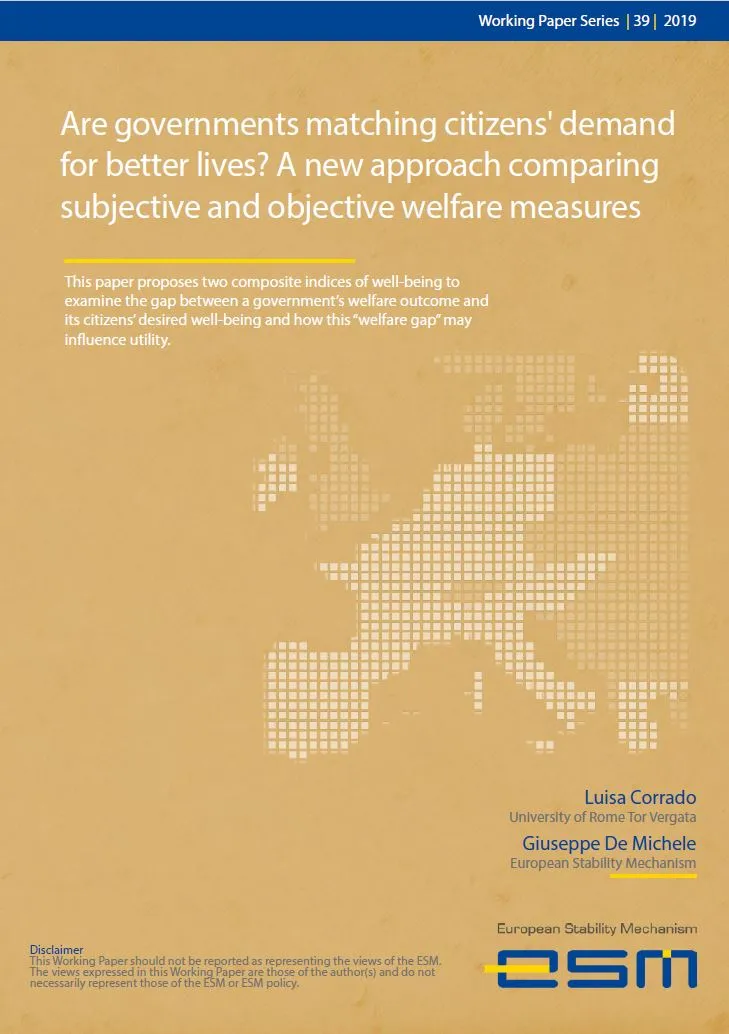Are governments matching citizens’ demand for better lives? A new approach comparing subjective and objective welfare measures

Download PDF: Working Paper 39
This paper proposes two composite indices of well-being to examine the gap between a government’s welfare outcome and its citizens’ desired well-being and how this “welfare gap” may influence utility.
Author: Luisa Corrado (University of Rome Tor Vergata) and Giuseppe De Michele (ESM)
Abstract:
We propose a new approach which helps to shed light on the importance of the relationship between a government's welfare outcome and its citizens' desired well-being, defining a concept of "welfare gap". To determine this gap, we build two composite indices of well-being measured at the individual and aggregate level - i.e. subjective and objective welfare measures - assessing overall well-being and its progress over time. To this end, we apply idiosyncratic settings of Structural Equation Models to examine the interrelations and causal relationships across welfare determinants and among the underlying drivers of well-being. By comparing the dimensions' weights and rankings of the objective and subjective welfare measures, we obtain largely opposite results in both analyses, except for the relevance of the health status. Material living conditions are the most important dimensions in the objective ranking, whilst the quality of life indicators lie at the top of the subjective ladder. Moreover, the distance between subjective welfare aspirations and objective outcomes described through the "welfare gap" measure could contribute to explaining the anti-establishment sentiment recently observed in different societies.
Disclaimer: This Working Paper should not be reported as representing the views of the ESM. The views expressed in this Working Paper are those of the author(s) and do not necessarily represent those of the ESM or ESM policy. No responsibility or liability is accepted by the ESM in relation to the accuracy or completeness of the information, including any data sets, presented in this Working Paper.
Keywords: Structural Equation Modeling, Latent Multidimensional Index, Beyond GDP, Utility Function, Objective Welfare Index, Subjective Welfare Index, Stated Preference, Generalised SEM MIMIC, GSEM, Bootstrapped SEM, Small Sample Size, Weights.
JEL codes: C43, C83, D12, D63, E21, E24, I31, I38, O57